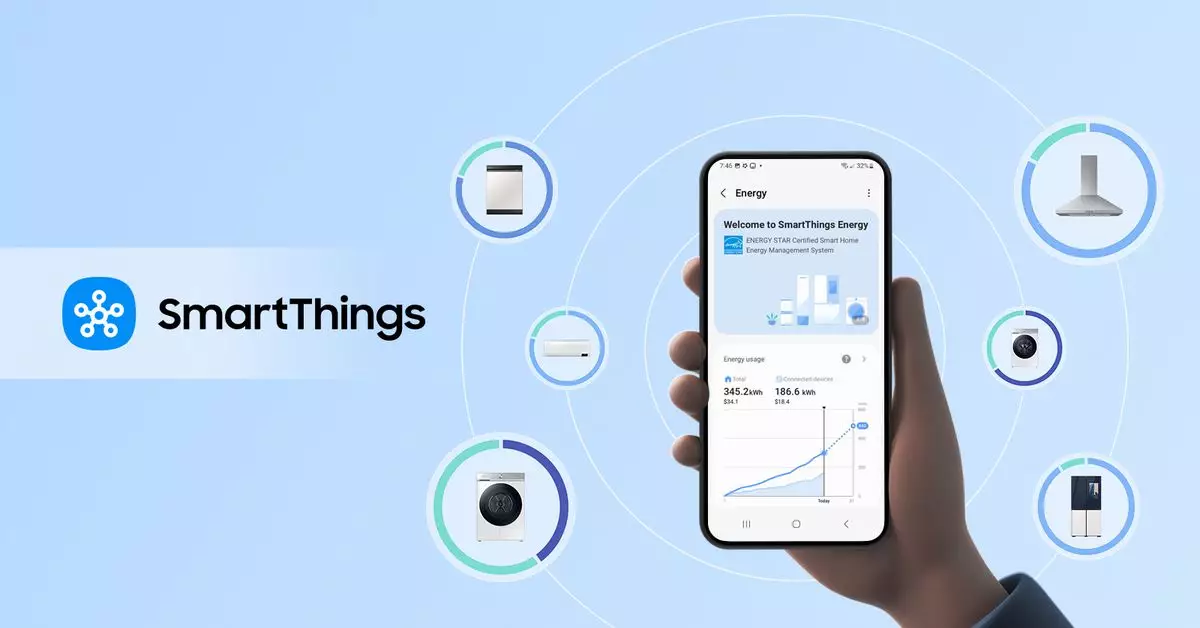Samsung has recently launched a new demand response program called Flex Connect for its SmartThings smart home platform. This program allows SmartThings connected appliances to communicate with the energy grid and automatically reduce energy consumption during peak demand times to prevent blackouts. While this initiative has been met with some skepticism due to concerns about privacy and security, many experts argue that integrating smart homes with the energy grid is crucial for ensuring the stability of our energy network.
Flex Connect works in conjunction with SmartThings Energy, an energy management solution, to leverage SmartThings’ AI Energy Mode. This mode enables smart appliances and connected devices to adjust their energy usage based on predetermined targets set in the app. When a demand response signal is received from the utility company, Flex Connect can activate the AI Energy Mode to optimize energy consumption in supported appliances, power off devices, and adjust thermostats accordingly. Samsung claims that this program can lead to significant energy savings, with potential reductions of up to 70 percent when using Samsung products.
Participating in the Flex Connect program not only helps consumers save on their energy bills by optimizing energy usage but also offers additional incentives. Users can earn Samsung Rewards points through Flex Connect, which can be redeemed for products on Samsung.com. Additionally, participants may be eligible for rebates from their utility providers for engaging in demand response events. This combination of cost savings and rewards adds value to the program for consumers looking to reduce their energy costs.
One of the key advantages of Flex Connect is its compatibility with a wide range of devices, including Samsung appliances and third-party products from brands like Wemo, TP-Link, Aeotec, Ecobee, and Sengled. Furthermore, Tesla products such as the Powerwall and Loop EV chargers are also supported, indicating a commitment to inclusivity and broad device integration. With Samsung’s involvement in Matter, a new smart home standard, we can expect to see an expansion of compatible devices in the future, including more large appliances and improved energy reporting capabilities.
Despite the potential benefits of the Flex Connect program, there are valid concerns regarding privacy and security. By connecting smart homes to the energy grid, users may inadvertently expose personal information and usage patterns to third parties. Moreover, the reliance on AI Energy Mode to make decisions about energy consumption raises questions about data protection and potential vulnerabilities to cyber threats. As the program becomes more widely adopted, it will be essential for Samsung to address these concerns and prioritize user privacy and security.
Samsung’s Flex Connect program for the SmartThings smart home platform offers a promising solution for energy optimization and cost savings. By integrating demand response capabilities with AI Energy Mode, users can efficiently manage their energy usage and contribute to grid stability. However, as the program continues to evolve and expand, it will be crucial for Samsung to address privacy and security concerns to ensure the trust and engagement of consumers. With ongoing advancements in device compatibility and support for new technologies, Flex Connect has the potential to reshape the smart home landscape and drive sustainable energy practices.


Leave a Reply